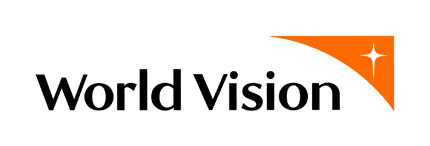Ubuntu: I am because of who we all are
South Africa is known for giving the world the concept of ubuntu: I am because of who we all are. It’s a philosophy that speaks of interconnectedness, interdependence, and the web of reciprocity that binds us all together.
It is a beautiful philosophy, and as South Africa emerges from lockdown into one of our worst economic recessions, we have to question whether we are collectively living up to the duty and the promise of ubuntu.
Job loss estimates for the last few months vary widely, from hundreds of thousands to three million or more, but there is no question that people are hurting. We see the evidence of this in the higher rates of food insecurity, for instance.
As we near a one-year anniversary since the country went into national lockdown, it is time for us to consider how best we can build back better, live out our ubuntu values and, as a society, make sure that we are rising strong. This is the joint responsibility of every South African, regardless of circumstance. We can’t sit back and wait for other people to take action, because it’s up to each of us to make a difference.
South Africa’s future depends on enabling children to thrive. If we want to uplift a child, we must uplift the surrounding community they live in. There are multiple interventions that can, and should, be made to ensure every child is able to realise their potential, in a safe environment, with committed teachers, and opportunities for employment. Our efforts should be directed towards ensuring their future.
We know what needs to be done. We must work together to tackle poverty, racism, gender inequality, and gender-based violence. These issues may feel so large that we as individuals are powerless against them, but it boils down to this: are we looking after the most vulnerable and the most marginalised? Do we act in our personal lives to promote justice and inequality? Do we speak up when we see someone else put down?
We each have individual responsibilities and roles. But when we come together, each doing our part, we can have a collective effect that is much greater than the sum of our individual actions.
Change starts in the home, in having conversations about racial inequalities, patriarchy and gender-based violence, helping children to be mindful of social justice issues, and paying people who work for you a living wage.
It’s important that action for change also happens at a community level. South Africa needs active citizens, and this means taking an interest in local affairs, such as municipalities’ integrated development plans, the school parent teachers association, and community policing forums, as well as sending letters to parliament as part of the public participation process for legislative change.
And by funding civil society organisations it’s possible to live out our values, and call for change, at a wider level, as these organisations have the experience and expertise to bring lasting change on a national level.
We believe the best solutions come from within communities themselves, through dialogue and collective action. We are posing the question: how do we create a stronger South Africa?
We are genuinely interested in the answer. We know, in broad strokes, what our priorities should be – to put children at the centre of our society, to create safety and promote education and employment – but we believe communities must be allowed to take ownership in realising these priorities. Solutions have to be contextual, not one-size-fits-all, and they cannot be imposed from above.

